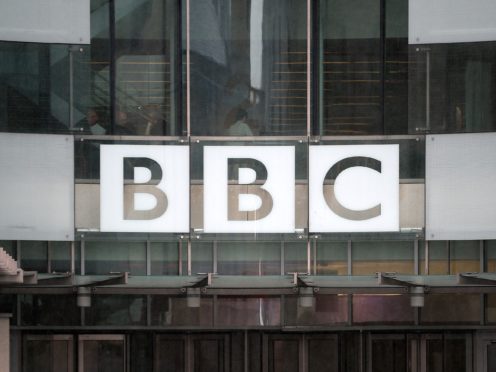The BBC has been told to consider scrapping free TV licences for the over-75s to save money after a report claimed there is little need for the concession.
Campaigners for the elderly said that the move would be “purely economic”, ignoring the true needs of the elderly and denying them a “window to the world”.
Economic consultants commissioned by the broadcaster claim the cost of providing a free BBC service to over-75s would exceed £1 billion a year in a decade’s time.
The report by Frontier Economics said pensioners are now wealthier and healthier, so financial relief and the company afforded by TV are not needed as much.
Our new report for the @BBC discusses a range of different approaches to reforming concessionary television licenses for over-75s.
Read the full article here: https://t.co/QLK2qcwUpM
— Frontier Economics (@FrontierEcon) November 1, 2018
BBC bosses were advised to change the age threshold for the concession, alter the value of the discount or scrap the free licence completely.
The free licence is already expected to cost the BBC £745 million – £100 million more than its entire radio budget – by the time the concession runs out in 2020.
A report has suggested three main options for the corporation – which has faced making major savings and a loss of revenue due to the licence fee freeze – none of which involve keeping the free licence in its current form.
The cost-saving move has been criticised by Caroline Abrahams, director of the Age UK charity.
She said: “This report looks at the TV licence concession for over-75s in purely economic terms and from the point of view of the BBC, but in doing so it underplays or sometimes omits a number of important issues from the perspective of older people.
“There are two million people aged 75-plus, one in two of whom are disabled and one in four of whom view the television as their main form of companionship.
“For many others, including those who are chronically lonely – a social problem we are far more attuned to than was the case a few years ago – the TV is a precious window on to the world.
“There are also still significant numbers of older people living on very low incomes who would genuinely struggle to pay a licence fee.”
The report said: “In our view there is no particularly compelling economic rationale for reinstating the concession in its current form.”
It adds that the threshold of 75 – above which is the age group that watches the BBC the most – is “somewhat arbitrary”, and not tied to other benefits for pensioners.
The report claims the reasons for introducing the concession have gone, with the weekly income of over-75s greatly increased since the free licence began in 1999, doubling from £220 to £452.
More than 4.46 million homes with older residents currently receive a free TV licence, saving them £150.50 a year.
BBC bosses have been advised that less than half of over-75s live by themselves, and are therefore at less risk of social isolation than when the concession was introduced.
The report said there is “little compelling evidence that there are significant external benefits”, including aiding mental health and curbing isolation, to make a free licence financially worthwhile.
Four main options were considered in the report:
– Scrapping the concession
– A 50% discount
– Raising the age threshold to 77 or 80
– Means-testing in line with pension top-ups
A voluntary payment scheme was considered, with evidence that older people give more to charity, but the revenue was said to be too unpredictable.
Age UK said it understands the financial pressure on the BBC but asked the corporation to think of “older people’s lives and the consequences of watering the concession down or removing it”.
A BBC spokesman said: “We are grateful to Frontier Economics for their full report. It is clearly the result of careful study and analysis. It will help inform the BBC’s consultation on the future of the over 75s concession once government stops funding it in 2020.
“There are important issues to consider and we will do nothing without consulting with the public. We will be setting out a range of options in our consultation paper.
“Everyone who wants to contribute will be able to do so once the consultation is published.”
Even if the BBC scrapped the concession, the report estimates it would still cost £72 million to tell people about the change, implement it and also account for possible non-payment among those over 75.
